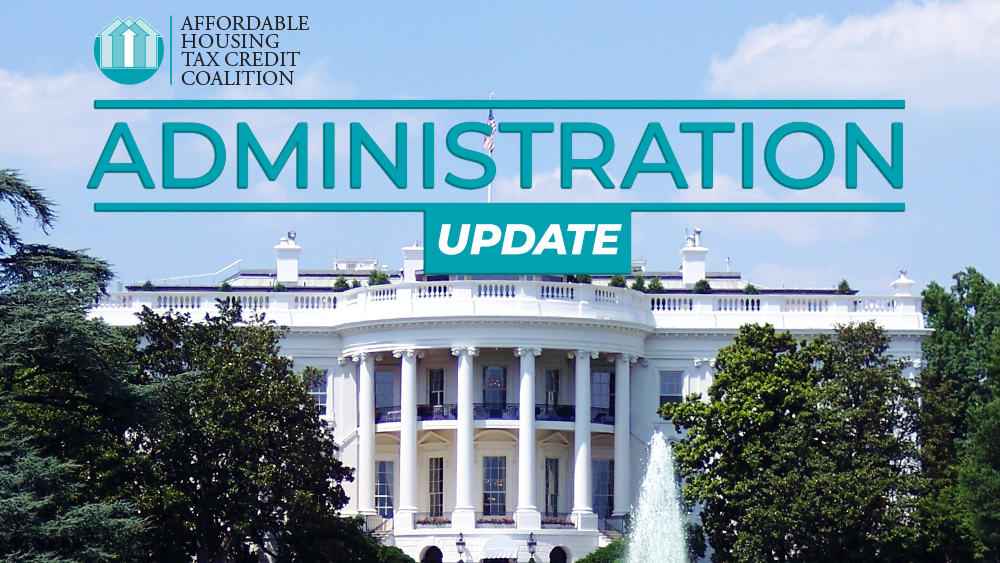New guidance issued by the Treasury Department today will address statutory barriers to using American Rescue Plan (ARP) State and Local Fiscal Recovery Funds (SLFRF) for the development of Housing Credit properties.
A total of $350 billion is available under SLFRF, $4.2 billion of which has already been budgeted for affordable housing development and several billions more for other affordable housing uses. However, while affordable housing is already an eligible use of SLFRF program funds, the current SLFRF structure makes it very difficult, and in many cases impossible, to use these funds in a Housing Credit development. The guidance released today will help ensure these funds can be used for affordable housing production and preservation. The Treasury Department and HUD also jointly released a “How-To Guide” for using SLFRF funds with other sources of federal funding.
Flexibilities Provided in New Treasury Guidance
The new Treasury guidance will (1) increase flexibility to use SLFRF to fully finance long-term affordable housing loans and (2) expand presumptively eligible affordable housing uses to further maximize the availability of SLFRF funds for affordable housing. Details of the provisions are below.
- Flexibility for Long-Term Loans: The guidance permits governments to use SLFRF funds to fully finance long-term affordable housing loans, including the principal of any such loans, subject to certain conditions. These changes will facilitate significant additional financing for affordable housing projects, including Housing Credit properties.
- Expansion of Presumptive Eligibility: The guidance expands the list of uses that are presumptively eligible for SLFRF to include an expanded range of federal programs from multiple agencies, permitting more options for how states and local governments can presumptively use funds for affordable housing. In addition, Treasury is updating guidance to clarify that SLFRF funds may be used to finance the development, repair, or operation any affordable rental housing unit that provides long-term affordability of 20 years or more to households at or below 65% of the local area median income.
Support from Congress and the Biden Administration
The Treasury Department initially indicated that it did not have authority under the statute governing the SLFRF funds to use these funds as long-term loans to Housing Credit-financed developments. In order to change the underlying statute, in February the AHTCC and 81 other organizations, including 55 AHTCC members, joined a letter to congressional leadership led by the National Council of State Housing Agencies (NCSHA) urging that the SLFRF program be adjusted to facilitate its use with the Housing Credit. The AHTCC also endorsed the LIHTC Financing Enabling Long-term Investment in Neighborhood Excellence (LIFELINE) Act, which mirrors the flexibility issued today regarding long-term loans. The LIFELINE Act was introduced by Sens. Patrick Leahy (D-VT) and Susan Collins (R-ME) in the Senate (S. 4181) and Reps. Alma Adams (D-NC), David Rouzer (R-NC), and Carolyn Maloney (D-NY) in the House (H.R. 7078).
However, with today’s new guidance, the Treasury Department has indicated that this legislation is no longer necessary after reaching a conclusion that there is flexibility within the existing statutory authority to modify the January 2022 Final Rule for SLFRF to allow these funds to be used to much more easily support the financing of affordable housing.
The Treasury press release explains that the new guidance follows a commitment in the Biden Administration’s Housing Supply Action Plan to increase the nation’s housing supply and ease housing costs over time. Deputy Secretary of the Treasury Wally Adeyemo is quoted in the press release, saying, “Increasing the nation’s housing supply is essential to lowering shelter costs over the long-term… Treasury continues to strongly encourage state and local governments to dedicate a portion of the historic funding available through President Biden’s American Rescue Plan toward building and rehabilitating affordable housing in their communities and the actions being announced today will make it even easier for them to do so.”
We applaud the Biden Administration for its support of affordable housing and its focus on expanding affordable housing supply to reduce the high costs facing Americans across the country. As part of the Housing Supply Action Plan, the White House also called for finalizing the Average Income Test regulations by the end of September, and enacting key Housing Credit production provisions, including increasing the Housing Credit allocation and lowering the bond financing threshold. We will continue to work with the Administration on its efforts to address the affordable housing crisis, including other Housing Supply Action Plan proposals to expand and strengthen the Housing Credit.



Comments are closed.